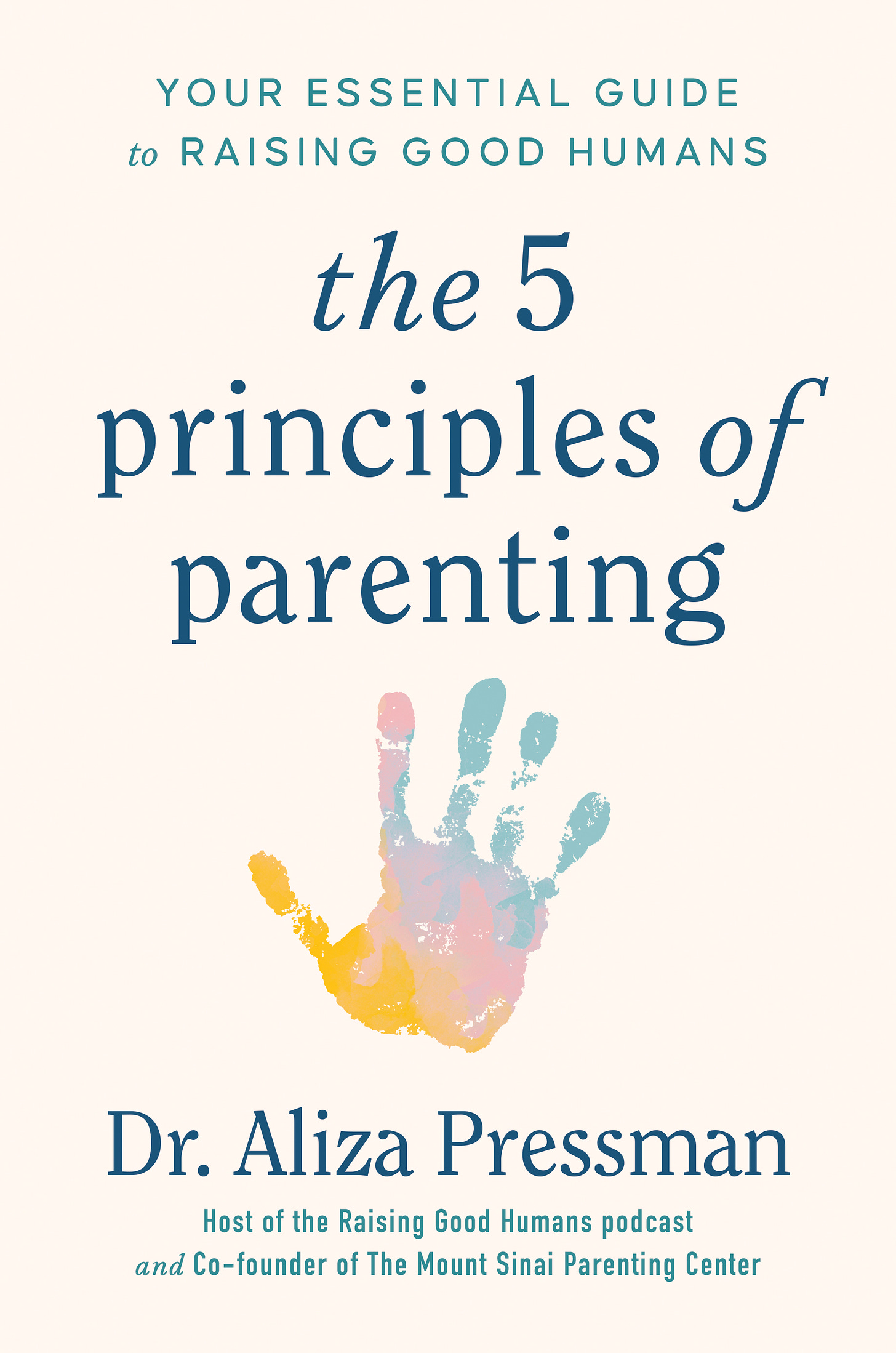Thanks for reading Raising Good Humans on Substack! My first book, The Five Principles of Parenting: Your Essential Guide to Raising Good Humans is now available for purchase here.

On the latest episode of Raising Good Humans Podcast, I am again joined by Jennifer Wallace to revisit the research behind her groundbreaking book, Never Enough: When Achievement Culture Becomes Toxic - And What We Can Do About It. We thought a reset could help us all start off the year with a plan to promote healthy striving, without the pitfalls of maladaptive achievement pressures. This week’s episode reminds all of us of where we want to go - for our children and ourselves.
In light of the Surgeon General’s advisory last week, more conversations are happening around parental stress. By revealing the stress parents are under, we are also coming face-to-face with the pressure we all feel to deliver children who are exceptional. Who will have lives better than our own. Who will have success in an uncertain world. But that pressure can do us - and our children - harm. We know from the research that achievement pressure, where our children are defined by their resumes and not their character, can be overwhelming for kids, leading to anxiety, depression, and low self-esteem.
As the new school year ramps up, even kids as young as preschool are receiving messages about whether their worth is tied up in their accomplishments. It’s time to check in with ourselves, and to once again think this through for, and with, our kids. This is a hard world to parent in, and a noisy world in which to find what truly matters. But it doesn't have to be that way, and finding what your family values does not mean you can’t also support kids do amazing things.
Here are five ways you can fight achievement pressure in your home this school year.
Shut out the noise. Make your home a safe haven from achievement pressure. At home, your child is exactly who they want to be. Create an atmosphere where your child can relax and de-stress. Avoid daily battles around schedules and expectations, and focus on the stuff that keeps them regulated - like sleep, nutrition, physical activity, and downtime. Set aside one time a week to talk through what’s coming next or what has to get done during the week, but make sure there is plenty of time for joy and downtime elsewhere.
Love unconditionally. Let your child know that you love and value them for who they are, not what they achieve. Find ways to join them in their interests, explore their passions, and help them feel seen and heard, as they are. Instead of looking at who they “could be,” keep your eye on exactly who they are in front of you, today. Make sure they feel “good enough” without needing to do more, be more, or achieve more. When in doubt, remember to ask yourself if there is any chance they think your love for them relies on the splendor of their achievements.
Build a village. Make sure that the institutions and adults who surround your child share your values around achievement. If they don’t - or they are facing intense pressure in school, sports, or in other areas - talk about it. Acknowledge the pressure your child may be feeling and partner with them to help find solutions. Lift up the voices of the people who support your child, and work to combat those that may be defeating them.
Celebrate failure and if you can’t bring yourself to do that, find ways to fail well. Teach your child that mistakes are a natural part of learning, and that failure is an expected part of the journey. Encourage them to take risks, to try new things, and to step out of their comfort zone. If our children can embrace failure, they are more likely to face challenges with resilience and not fear. Help them set realistic goals and focus on progress rather than perfection. Play “what if” scenarios to get at misconceptions they may have in their minds, and challenge what they assume will happen if they make mistakes. Living by this yourself will help.
Model healthy behaviors. The pressure can get to you, too. Check in with your own fears and values, and reflect on how you may be sacrificing what matters for the sake of achievement pressure. We are all guilty in one way or another - feeling FOMO for what other parents are doing, worrying about setting our children up for the future, not wanting to miss any opportunity to do what is right. We may believe that our children are a product of our parenting, or that every move we make is critical, but we know from research that it just isn’t true. Calm your own nervous system - with a breath, a walk, a meditation - and show your child how to manage stress and cope with challenges in a healthy way.
What household commitments can you make to yourself and your family that will help foster a culture of healthy striving?
A quick reminder to buy my first book, The Five Principles of Parenting, and write a review from wherever you order. Reviews really help to get the book noticed, and to spread the word. Please especially rate and review any books purchased on Amazon (it shockingly really, really matters!). Also, when you receive the book, snap a quick pic with it and post on social media. Share one thing you love about it and help me to get more copies into the hands of parents in your community. Tell a friend about the book, or about something you found helpful in the book. Parents look to each other for advice, and I’d love to be a part of the support you pass on to your loved ones.






I am so thankful for you. Your podcast, your guests and your raw authentic honesty. It is helping me navigate parenting a 16 and 14 year old with the feeling of not being alone. Thank YOU🩷
This was wonderful!